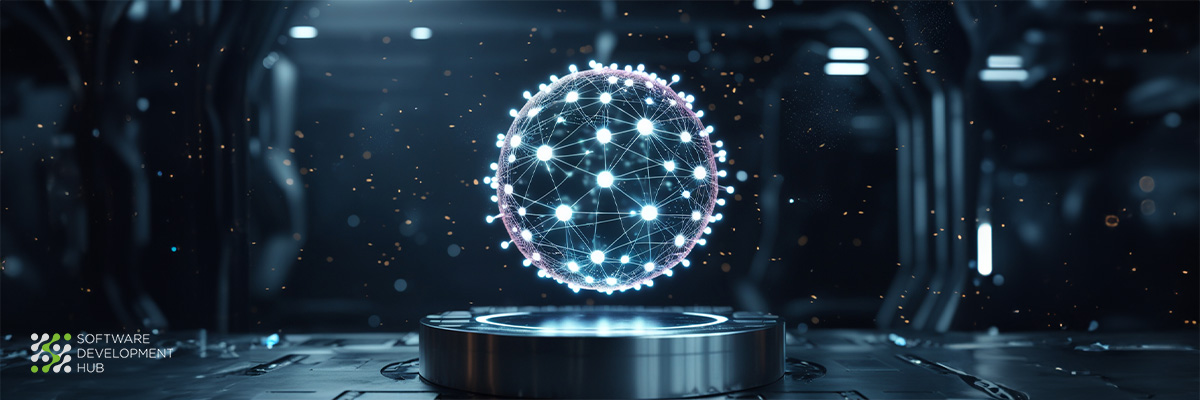Will AI Replace Software Engineers? Here's What The Data Really Shows
The question facing every software engineer today isn't whether AI will impact their career—it's how much and how soon. Researchers at the US Department of Energy's Oak Ridge National Laboratory present a stark timeline: there's a high probability AI will replace software developers by 2040. This isn't merely academic speculation. Nearly 30% of 550 surveyed software developers already believe their development work will be replaced by artificial intelligence within the foreseeable future.
Current job market indicators reflect this emerging reality. IT sector unemployment spiked from 3.9% to 5.7% in a single month, surpassing the US national average of 4% as of January 2024. A comprehensive survey of 9,000 software engineers revealed that 90% consider job hunting significantly more challenging now compared to 2020.
What does the data actually tell us about AI's impact on software engineering careers? Which specific roles face the greatest risk, and how might the profession adapt rather than simply vanish? This analysis examines the evidence behind these critical questions and explores what software engineers can expect in the years ahead.
The Current Role of Ai In Software Development

AI has established itself as a productivity multiplier rather than a replacement in modern software development workflows. The technology reshapes how code gets written, tested, and deployed across organizations of all sizes.
The shift is already underway. OpenAI CEO Sam Altman recently stated that artificial intelligence could reduce demand for software engineers over time, noting that AI currently writes a significant portion of code in many organizations—"probably past 50% now" according to his estimates. The implications extend far beyond individual coding tasks. Industry analysts project that by 2027, half of all software engineering organizations will deploy intelligence platforms specifically designed to measure and boost developer productivity.
AI-assisted coding and automation
AI-powered tools have become standard equipment in developer toolkits, delivering measurable improvements in both productivity and code quality. McKinsey research indicates that approximately 67% of companies have integrated some form of AI into their software development processes. The business impact proves significant—organizations implementing AI-driven development report 30-50% reductions in software development costs alongside 20-30% decreases in development time.
These efficiency gains stem from AI's ability to handle routine coding tasks while developers focus on higher-level problem-solving and architecture decisions.
Code generation and refactoring
Contemporary AI frameworks excel at generating contextually appropriate code snippets, suggesting relevant functions, and predicting logical code continuations. GitHub Copilot, Tabnine, and Amazon Q Developer represent the current generation of intelligent coding assistants that adapt to individual developer patterns and project-specific conventions.
The technology extends beyond initial code generation. AI-driven refactoring tools analyze existing codebases to suggest optimizations that improve maintainability and reduce technical debt accumulation over development cycles.
Bug detection and testing improvements
AI demonstrates particular strength in quality assurance processes. Machine learning algorithms can process extensive codebases to identify bugs and security vulnerabilities that traditional review methods might overlook. Platforms such as DeepCode, Amazon CodeGuru, and Code Climate employ sophisticated pattern recognition to flag potential issues before they reach production environments.
Predictive analytics adds another dimension by analyzing historical bug patterns to forecast likely problem areas, enabling development teams to allocate testing resources more strategically.
AI in DevOps and CI/CD pipelines
Continuous integration and continuous delivery workflows benefit substantially from AI automation. Modern AI systems monitor code changes, analyze test results, and evaluate production metrics to provide actionable insights about system performance and potential bottlenecks. This analysis capability helps development teams identify issues earlier in the deployment pipeline.
The integration reduces manual oversight requirements while maintaining quality standards through automated testing protocols and deployment validation.
Natural language interfaces and chatbots
Natural Language Processing capabilities have simplified the development of conversational interfaces that handle text and voice interactions. These systems process user queries, extract relevant information, and generate appropriate responses through Natural Language Understanding techniques.
The implementation barrier has decreased significantly. Developers can now integrate voice command functionality into applications using browser APIs combined with speech transcription services, making advanced interface capabilities accessible without specialized expertise.
Ai Tools That Support (Not Replace) Software Engineers
Rather than displacing software engineers, today's AI tools function as sophisticated assistants that augment human capabilities. We should recognize these technologies for what they actually are: productivity enhancers that handle routine tasks while preserving the creative and strategic aspects of software development for human engineers.
TensorFlow and PyTorch for AI model development
The framework landscape has seen notable shifts in recent years. PyTorch has gained considerable ground among researchers, with implementation in research papers rising from 51% to 59% between 2020 and 2024. Meanwhile, TensorFlow usage dropped from 10% to 2% during the same period.
What's particularly noteworthy is the performance advantage of non-default bindings—PyTorch's C# binding processes certain models more than twice as fast as its Python counterpart. This demonstrates how engineers can optimize AI tools beyond their standard configurations to achieve better results.
GitHub Copilot and AI code assistants
GitHub Copilot has established itself as the leading AI coding assistant, helping developers focus on problem-solving rather than repetitive coding tasks. The productivity gains are measurable: developers report up to 75% higher job satisfaction and 55% increased productivity without compromising code quality.
The adoption trajectory is steep. Gartner projects that by 2028, approximately 90% of enterprise software engineers will use AI code assistants, compared to fewer than 14% in early 2024. However, GitHub maintains a clear position: Copilot is not "Autopilot"—it's designed to enhance developers, not replace them.
Limitations that require human oversight
Despite their capabilities, AI coding tools exhibit significant limitations that underscore the continued need for human engineers. A 2023 study revealed that AI assistants produce code with a 30.5% error rate, with an additional 23.2% being only partially correct. This translates to roughly three out of every ten generated lines requiring substantial rework.
These tools struggle with several critical areas:
- Contextual awareness and intuitive problem-solving
- Innovative solutions that require creative thinking
- Security vulnerability detection and prevention
- Understanding of broader system architecture implications
The data makes clear that human oversight remains essential for ensuring code quality and maintaining ethical development standards. AI tools excel at generating boilerplate code and suggesting common patterns, but complex software engineering decisions still require human judgment and expertise.
How Ai Is Reshaping Developer Skills
The software engineering skill set is undergoing a fundamental shift. We're witnessing developers who once focused purely on traditional programming languages now needing to understand AI frameworks, data processing, and even business domain knowledge. This evolution requires both technical depth and human capabilities that work alongside artificial intelligence rather than against it.
Machine learning and data science fundamentals
Modern developers need solid grounding in machine learning algorithms, data preprocessing, and feature engineering. Python and SQL have become non-negotiable skills, particularly since most AI frameworks either run on Python or integrate seamlessly with it. Libraries like Pandas and Scikit-learn are no longer optional tools—they're essential components of the modern developer's toolkit.
The challenge lies not just in learning these technologies, but in understanding when and how to apply them effectively. Pattern recognition, statistical analysis, and data visualization capabilities have moved from nice-to-have skills to fundamental requirements for many development roles.
Understanding neural networks and NLP
Natural Language Processing (NLP) enables machines to process human language as written, spoken, and organized. For developers, this means grasping concepts like tokenization, embeddings, and language models that power everything from chatbots to code generation tools.
Neural network familiarity—including convolutional networks for image processing and recurrent networks for sequence data—provides the theoretical foundation needed for implementing advanced AI applications. These aren't abstract concepts anymore; they're practical tools that developers use to solve real business problems.
Technical debt management in AI-driven projects
Here's a reality check: with AI integration, all technical debt is essentially becoming AI technical debt. Organizations with high technical debt currently allocate up to 40% of their IT budgets toward maintenance rather than value-generating activities.
AI tools can help identify, prioritize, and automatically refactor problematic code patterns. However, developers need to understand how to work with these tools effectively, knowing when to trust their suggestions and when human judgment must prevail.
Soft skills: adaptability and collaboration
Technical skills alone won't be enough. The data shows us what employers actually value:
- Communication skills remain the most requested skill in the U.S., appearing in over 1.9 million job postings
- Cross-functional collaboration demands rose nearly 20%
- Developers complete tasks up to 55% faster when using AI coding tools
This last point is crucial. Speed improvements come not just from AI capabilities, but from developers who can communicate effectively with both machines and humans, adapting their approach based on project needs and team dynamics.
Will Software Engineers Be Replaced By Ai?
The evidence presents conflicting signals about the future of software engineering careers. Short-term disruption appears certain, but long-term displacement remains more complex than initial predictions suggest.
What the data says about job displacement
The U.S. Bureau of Labor Statistics projects software developer employment will grow 17.9% between 2023 and 2033—significantly outpacing the 4.0% average for all occupations. This optimistic forecast, however, contrasts sharply with immediate market realities. Unemployment jumping from 3.9% to 5.7% in a single month demonstrates how quickly conditions can shift. Entry-level positions face particular pressure, with junior developer job postings declining 23% over two years.
Currently, approximately 75% of developers incorporate AI tools into their engineering workflows. This widespread adoption indicates the industry has moved beyond experimental phases into practical implementation.
Why human creativity and problem-solving still matter
Software engineering encompasses far more than code generation. The discipline requires creative problem-solving and stakeholder collaboration to address complex business challenges. AI systems continue to struggle with processing extended contexts needed to identify how code changes affect interconnected system components.
Human developers remain indispensable for understanding the systematic impact of modifications and effectively utilizing existing functionality. These cognitive demands exceed current AI capabilities and represent areas where human expertise maintains clear advantages.
The rise of 'AI software engineers' as a new role
We're observing the emergence of "AI-First Software Engineers"—hybrid professionals who possess distinct capabilities:
- Effective AI model prompting and interaction
- AI-generated code auditing and improvement
- System architecture and design understanding
This evolution shifts engineers from direct coding to becoming orchestrators who direct AI systems through complex tasks. AI engineers will assume critical roles in both implementation and development processes.
Expert predictions for 2030 and beyond
Research from Oak Ridge National Laboratory maintains there's a high probability of AI replacing software developers by 2040. This aligns with survey data showing 30% of developers expect AI to replace their development work. Gartner forecasts that 80% of software engineers will require reskilling for new roles created as AI assumes programming functions.
Conversely, many industry experts anticipate AI integration will generate new opportunities requiring partnership between machines and humans. This perspective suggests evolution rather than elimination of software engineering roles.
The data indicates we should expect significant role transformation rather than wholesale replacement. Engineers who adapt their skillsets to work alongside AI systems may find expanded opportunities, while those who resist change face greater displacement risk.
Conclusion
The evidence points to a fundamental shift in software engineering rather than wholesale replacement. While AI-assisted coding tools now generate over 50% of code in many companies, the technology's limitations become apparent when we examine error rates and contextual understanding gaps that persist across current implementations.
The job market data presents competing signals. Short-term disruption has elevated IT unemployment beyond national averages, yet long-term Bureau of Labor Statistics projections still anticipate nearly 18% growth for software developers through 2033. This suggests AI will increasingly handle routine coding tasks while human developers migrate toward higher-value work requiring creativity, domain expertise, and stakeholder collaboration.
Successful adaptation will require specific competencies. Machine learning fundamentals and neural network comprehension provide the technical foundation, while communication skills and business acumen become equally critical differentiators. The ability to effectively direct AI systems and validate their output will likely separate thriving professionals from those struggling to adapt.
The fundamental question—"Will AI replace software engineers?"—frames the issue incorrectly. AI will redefine engineering practice itself. Software development has consistently adapted to technological advances, from early computing systems to modern programming paradigms. The emerging partnership between human insight and AI capability represents the profession's next evolutionary phase, not its endpoint.
We stand at a juncture where the software engineering discipline must embrace both technological augmentation and human-centered problem-solving. Those who recognize this dual requirement will find themselves well-positioned for the industry's continued growth and innovation.
Categories
About the author
Share
Need a project estimate?
Drop us a line, and we provide you with a qualified consultation.







